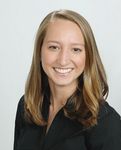Wellness Policy Specialist Virginia Department of Education
←
→
Page content transcription
If your browser does not render page correctly, please read the page content below
January 2021 Spoodle Report
SPOTLIGHT MEMBER
LAURA BURNS, RDN
Wellness Policy Specialist
Virginia Department of Education
MEET LAURA
Laura Burns, RDN, is the Wellness
Policy Specialist for the Virginia
Department of Education.
Originally from Gaithersburg,
Maryland, she completed her
dietetic internship at Virginia
Commonwealth University and has
made Richmond, Virginia her home
ever since. Laura is a wellness
champion for Virginia Schools who
always tries to practice what she
preaches- take care of body and
mind!
CONTENTS
Laura's career path
Self-wellness and it's importance
during COVID
Tips on mental health
Tackling the barriers of self-care
Wellness resourcesJanuary 2021 Spoodle Report LAURA'S PATH TO HER CURRENT ROLE I grew up in Gaithersburg, Maryland, and I completed my internship at VCU Health and stayed in Richmond ever since! In my Community Nutrition class at the University of Delaware, I shadowed a school dietitian in Wilmington, Delaware, which sparked my interest in community programs, specifically working with childhood feeding programs. After graduating from University of Delaware, I started my career in a community role at the Capital Area Food Bank in the after school and summer meals program, then went to Hanover County Public Schools as the Nutrition Coordinator writing meal plans, managing student allergies, and supervising cafeterias. I am currently the Wellness Policy Specialists for the Virginia Department of Education. The Local School Wellness Policy is a federal regulation designed to promote and protect childhood health by setting local policy around foods served, nutrition education and promotion, physical activity, and other wellness initiatives. I review schools' policies to ensure they are exceeding the USDA and Virginia regulations and provide support through virtual training and one-on-one assistance. We are currently working on a toolkit to provide simple, efficient materials to support school administration, School Health Advisory Boards, and nutrition directors to utilize the wellness policy regulation to its fullest potential. Our goal is optimal, equitable health for all students in Virginia through the promotion and modeling of positive wellness habits. I also facilitate a group called the Breakfast Club; striving to promote and encourage healthy breakfast options in schools through promotion, education, and support from community stakeholders. Our upcoming initiatives include a breakfast award for schools prioritizing healthy breakfast during COVID-19 and a sample grab and go menu to promote alternative breakfast models and the use of local Virginia and USDA foods.
SELF WELLNESS- NOW IS THE TIME! Of course, the wellness conversation is more important than ever right now! At the beginning of my presentations, I like to start with a mindfulness moment to remind my listeners to breathe, be present in whatever you're doing today, and be thankful for the positive relationships and experiences in your life. It only takes less than a minute and I believe one of the greatest takeaways from the COVID-19 experience is to be thankful for what we have. We've all been affected in so many ways. Giving this moment reminds the listener that I empathize with what they are going through; I am going through something too, and in more than one way we are going through it together. I have had the opportunity to give workplace health presentations to nutrition directors and the Department of Education staff. We've started to prioritize and disseminate resources for nutrition directors to foster positive work environments. Everything we do revolves around ensuring our students have access to healthy foods. When our nutrition staff (heroes!) are healthy and feel mentally safe and valued, there will be lower staff absenteeism and turnover allowing for a more efficient program and expanded access to children. MENTAL HEALTH "My biggest tip on mental health is to remember to breathe. When I think about my own wellness, taking a big, intentional breath is the first thing I do to refocus and connect with my body and my emotions. After taking a big breath, find the activities you love to do and fill your free time with them! Instead of watching TV after work, step away from the screen, put on your favorite tunes (my go-to right now is 90's holiday, think Hansons, Mariah Carey, N'Sync!), and do something that makes you happy. My husband and I will do yoga 2-3 times a week to stretch and reconnect. I love to listen to mental health podcasts, I recommend the Happiness Lab by psychologist Dr. Laurie Santos, and follow wellness Instagram and Facebook accounts. With mounting negativity in the news, anxiety over COVID-19, and One of Laura's favorite ways to stay uncertainty in the future, it is so important to fill your active and decompress is walking her social media with positive messages that support your dog at the beach. wellbeing. And share those messages with friends! When I find a positive message on Instagram, I'll post it to my story to spread happiness and positivity to my friends."
January 2021 Spoodle Report
TACKLING THE BARRIERS OF SELF-CARE
Barriers to wellness are specific to the individual's needs and wants so it is
tough to say there is one right answer to this question. It could be financial,
self-efficacy, self-acceptance, strong relationships/support systems, knowledge
of available resources, and of course for some children and adults: access to
basic needs such as food and shelter. I would say on a broad level, being in
tune with your body and understanding how you react to stress in order to
positively counteract its side effects and build resilience is key for self-care.
RESOURCES FOR CALM
Action for Happiness @ActionHappiness
Brene Brown @brenebrown
Look for local resources, like your book stores, local
yoga studios, or community gardens.
The Happiness Lab with Dr. Laurie SantosYou can also read






















































